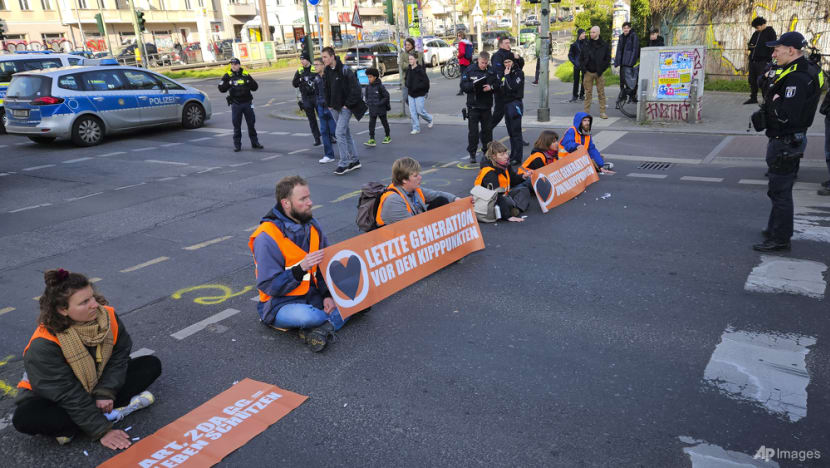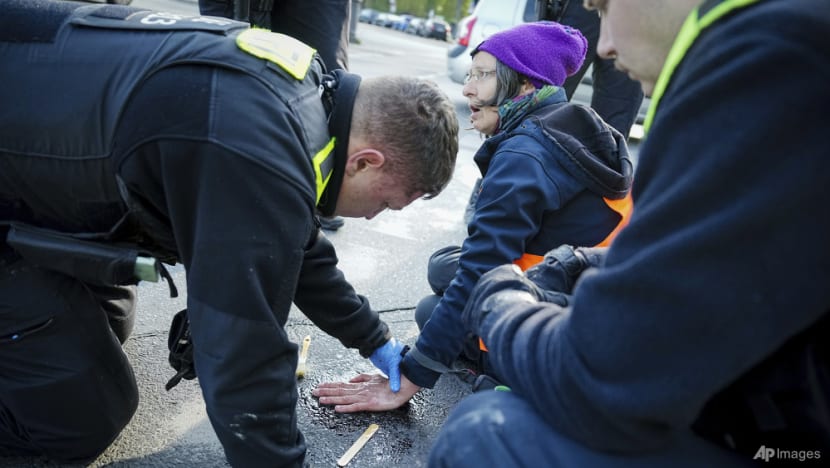Last Generation has acknowledged that its protests are provocative, but it argues that by stirring friction it can encourage debate within society about climate change.
“Sure, there are those who insult or criticise us,” activist Theodor Schnarr said. "But I've got the feeling that more and more people are coming to us on the streets and saying they think this is a good thing."
Schnarr said the group believes disruptive but peaceful protests are justified due to the enormity of the climate crisis and the urgent need to tackle it.
“We have all the solutions. The German government just needs to implement them,” he said.
But Frank Silzle, a motorist who was inconvenienced by Friday's blockade, said that while he agreed with the group's aims, he objected to its tactics.
“Ultimately I think it's counterproductive, what they're doing,” Silzle said. “I understand their cause completely, but the way they're going about it is sadly causing a counter-reaction within the population that is very, very harmful to the cause.”
Some German politicians have called for tougher police measures and sentences against the activists. So far, most courts have either acquitted activists or issued them fines, though three Last Generation members recently received prison sentences ranging from three to five months in southern Germany.
The group plans to meet with Germany's transportation minister next week to discuss its demands. They include the introduction of a universal speed limit on German highways, a move that experts say would be a quick and cheap measure to cut emissions.


